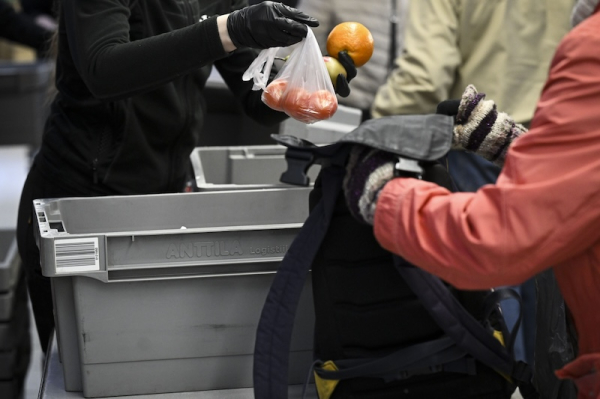Yle: Social aid for foreign students surges in Finland, policy review underway

More international students need food aid, cities report. Photo: Emmi Korhonen / Lehtikuva
- Next Article Young summer workers misclassified as entrepreneurs, says labour watchdog
Foreign-language students in Finland have received nearly as much social assistance in the first eight months of 2025 as during the entire previous year, according to data reported by Yle News.
Figures from the Social Insurance Institution (Kela) show over €12 million in support paid to students whose primary language is not Finnish or Swedish by the end of August. That compares with €12.9 million in all of 2024. Foreign-language students now represent nearly 40% of all student recipients of social assistance.
The surge comes amid record numbers of non-European students in Finnish higher education. Many of them are now accompanied by family members, adding to their living costs. Food aid services in cities such as Vaasa report that international students, particularly from Asia, make up a growing share of those seeking support.
The government has launched a ministerial working group to study the issue. The group held consultations in early September with universities and other relevant institutions. Its mandate includes assessing student cost-of-living challenges and possible misuse of student residence permits.
“There have been some indications that some students are using residence permits for purposes other than studying,” said Kaisu Piiroinen, senior ministerial advisor at the Ministry of Education and Culture. “In other words, their intent is to come to Finland for work, for example.”
The current situation follows a 2022 legislative reform under the government of then Prime Minister Sanna Marin (SDP), which removed the requirement for non-EU students to prove financial self-sufficiency after their first study year. The present government, led by Prime Minister Petteri Orpo (NCP), has indicated it may reverse that change.
Interior Minister Mari Rantanen (Finns Party) criticised the 2022 reform in a recent interview with Yle, pointing to the rising financial burden and pressure on public support systems.
The Orpo government has already passed legislation on tuition fees. From August 2026, international students who switch to work-based residence permits will still be required to pay tuition. Under the current rules, such students could become exempt if they left their studies for full-time employment.
“Previously, a student was not required to pay tuition fees if they received an employee residence permit. To some extent, this was used to circumvent tuition fees,” Piiroinen told Yle. “The aim is to select students who are motivated to study in Finland.”
Meanwhile, Finnish universities and universities of applied sciences are exploring their own responses. One concern is the role of unofficial agents promoting study in Finland with misleading promises.
Sanna Valliaro, Vice-Rector at Vaasa University of Applied Sciences, said the school is considering interviews or assignments as part of student selection. Currently, universities are bound by a centralised application process that treats all applicants equally, limiting their ability to screen candidates more closely.
“This is necessary especially for students who come from countries where we have not marketed ourselves,” Valliaro said.
The working group’s report is expected to guide further legislative or institutional action.
HT
- Next Article Young summer workers misclassified as entrepreneurs, says labour watchdog
Source: www.helsinkitimes.fi
